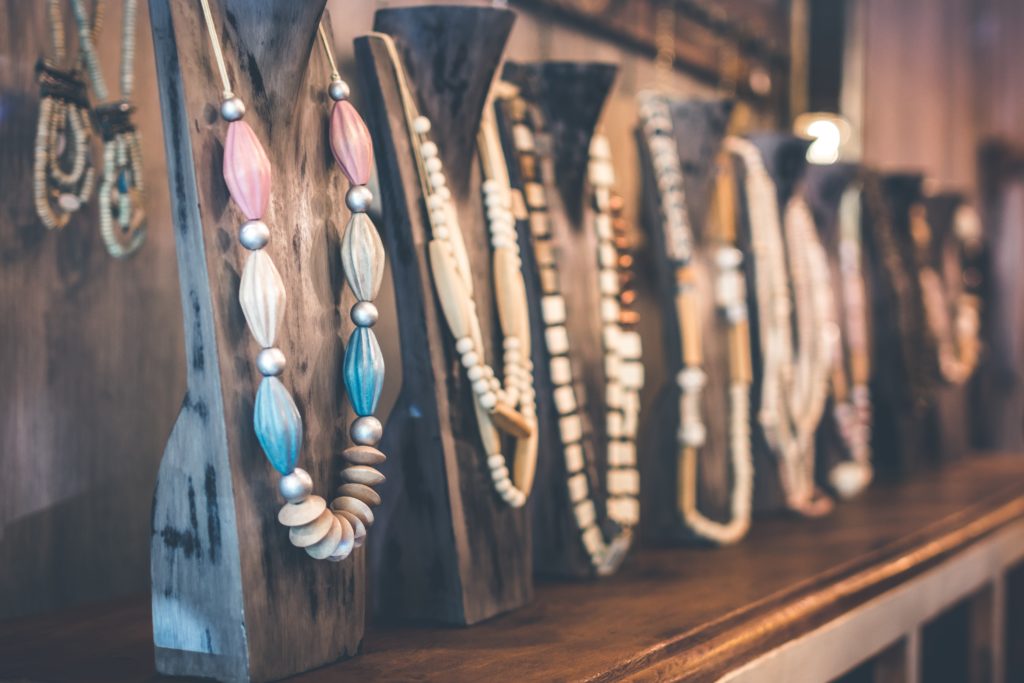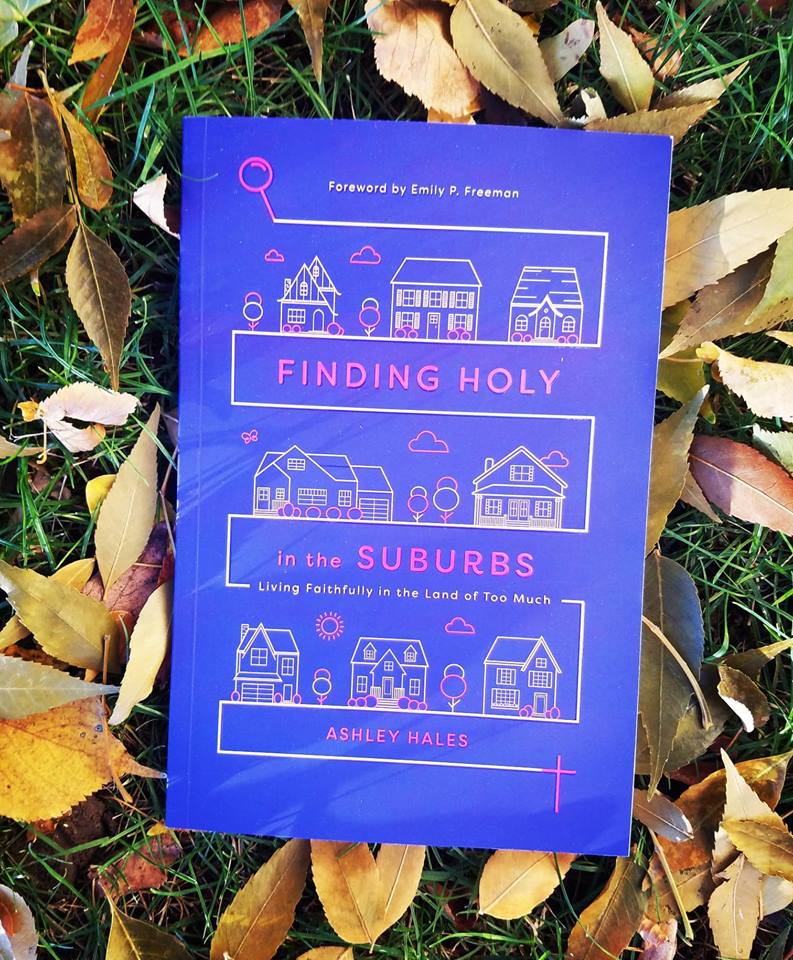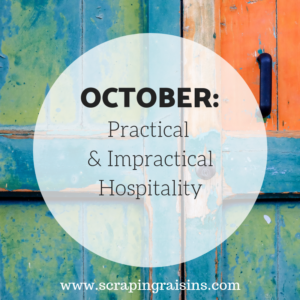
By Beth Watkins | Twitter: @iambethwatkins
Three Reasons to Shop Ethically…
1. It takes profits away from companies who hurt people.
The fashion industry is one of the biggest agents of slavery across the globe. Child labor is alive and well. Rivers downstream from the factories that dye our jeans and t-shirts are poisoned, leading to failing crops, lost farms, and whole villages of people who are incredibly sick. Garment workers for beloved brands are routinely physically and sexually abused. Lives and communities are being devastated by low wages, pollution, and cruelty and oppression by those who hold more power than they do. Divestment from these practices hurts the profits these companies make on the literal backs of others. And because there are alternatives I can mostly afford, there’s no need to encourage or reward companies doing evil.
2. You’re not complicit in a system dependent on the marginalization of people in order to function.
It’s a harrowing truth that, even with the best of intentions, all of us are complicit in modern-day slavery. Even if we could all afford fair-trade-everything all the time, we’re still complicit in slavery somewhere along the line (you can have a look at your slavery footprint here). Getting out as far as possible is good for our souls – if I want to be a person who loves my neighbors, how can I support a system that hurts them? May I not be one who sells the needy for a pair of sandals (Amos 2:6).
3. Ethical shopping supports people doing the right thing.
Most of the clothes and shoes we buy rely on highly skilled labor. I’m amazed by what artisans, makers, and craftsmen are capable of, and it’s good to support their work directly, or by companies who treat them like imago dei. The choice to pay employees a living wage and using materials that don’t harm makers or the environment are expensive choices to make. Businesses don’t make these choices for fun , but from principle. Responsibility, as well as from consumer demand. Those who make the hard choice deserve positive reinforcement – and yes, financial reward to cover the cost of the work.
…and Four Reasons Not To
With that said, consuming ethically isn’t as simple or straightforward as it seems. In fact, there are some reasons why maybe you shouldn’t shop responsibly.
1. Things can get real elitist, real fast.
Buying ethically is great – for those who can afford to do it. The price of single items from ethical brands can easily run into the hundreds of dollars. Ethical fashion becomes the domain of a white, middle-class, Instagram-influencer culture very quickly, with garments privileging those with small waistlines and large wallets. Sure – a conscious lifestyle can seem like the way everyone should be living, but if it’s out of reach for those who make $20,000 a year, is it truly just?
2. Turns out some of it isn’t even that ethical at all.
Many companies touting themselves as green or ethical are guilty of greenwashing – posturing themselves as ethical as a marketing strategy instead of a commitment to any actual positive good or change. Given the costs of ethical production, many big companies prefer to make small, nominal steps – and still reap the financial rewards from customers who have been led to believe they’re making better choices.
While it’s important to pay a living wage to garment makers, how ethical is a company if the fabrics and materials they used aren’t sourced ethically? When “ethical” is a marketing strategy and not a commitment, the results can be almost as bad as non-ethical options.
3. Ethical consumerism makes us worse people.
Studies show humans are permissive creatures who run on trade-offs. Thanks to the “halo effect,” we are more likely to cheat and steal after purchasing something we perceive as “ethical.” We also end up looking down on others – Hannah of Life+Style+Justice says: “There are certainly feelings of superiority that can come with making good choices, or what I perceive as the best choices, that’s quite prideful and ugly.”
Those are sins of commission, but there are also sins of omission. Buying things is easy; justice is hard. Instead of the common good capturing our imaginations and taking root in our actions, “ethical” can become a buzzword. The danger with ethical consumption is it becomes another trendy way to make us feel better about ourselves without commitment to our communities.
4. We can’t buy our way to a better world.
Recently I saw a friend on Instagram sharing pictures of accessories fairly made in developing countries, with the caption “ending poverty never looked so beautiful!” This approach is problematic for lots of reasons, not least because it takes all the complexities of global poverty and inequality, and turns it into something individuals can remedy simply by buying cute things.
People are poor as a result of huge, systemic issues and long histories of colonization, powerful countries exploiting other countries, with long-lasting impacts on global inequality today. While I agree with the Starfish Story approach to assistance, our efforts should be focused on ending systemic evils and rapacious policies, as well as on reparations for historic injustice.
To only focus on our own consumption as a fix is not only short-sighted, but also unfair to those we seek to help. It ignores our true agency – as the author of Myth of the Ethical Shopper puts it, “our real leverage is with our policies, not our purchases.” We can’t buy our way to a better world.
While ethical consumption is presented as an alternative to faceless corporate capitalism, it still relies on the same logic – desire more, consume more, it will make you happy and the world better. It’s a better alternative in our current paradigm – but it’s still in the same paradigm.
It would do us well to understand some of the complexity, history, (and our own country’s responsibility) in global inequality before we claim we can change the world just by buying a beaded necklace.
About Beth:
 Beth Watkins spent the last 6 years working in North and Sub-Saharan Africa with street children, refugees, and other vulnerable populations. She is currently settling back in the US with her immigrant husband and writes about living toward the kingdom of God and flailing awkwardly into neighbor-love at her website where her free e-book “For the Moments I Feel Faint: Reflections on Fear & Showing Up” is available.
Beth Watkins spent the last 6 years working in North and Sub-Saharan Africa with street children, refugees, and other vulnerable populations. She is currently settling back in the US with her immigrant husband and writes about living toward the kingdom of God and flailing awkwardly into neighbor-love at her website where her free e-book “For the Moments I Feel Faint: Reflections on Fear & Showing Up” is available.
***
Sign up for the (occasional) Mid-month Digest and the (loosely) “end of the month” Secret Newsletter for Scraping Raisins Here:
Photo by Artem Bali on Unsplash


 This month on Scraping Raisins we’re talking about practical and impractical hospitality. Be sure to follow along on my social media channels (buttons on top right of website) and
This month on Scraping Raisins we’re talking about practical and impractical hospitality. Be sure to follow along on my social media channels (buttons on top right of website) and 




